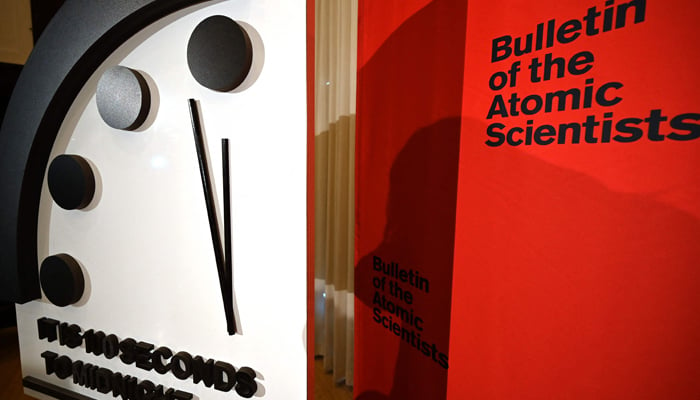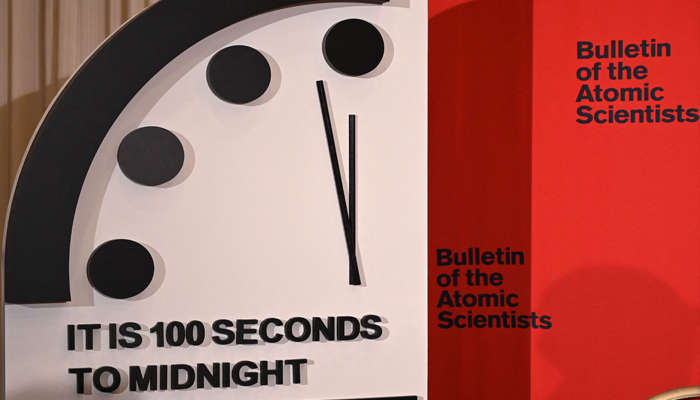Explainer: What is the 'Doomsday Clock' and how does it work?
Scientists will reset the "Doomsday Clock" on Tuesday with an estimate of how close humanity is in 2023 to annihilation
January 24, 2023

Atomic scientists will reset the "Doomsday Clock" on Tuesday with an estimate of how close they believe humanity is in 2023 to annihilation due to existential threats such as nuclear war and climate change.
What is the Doomsday Clock?
The "Doomsday Clock" is a symbolic timepiece showing how close the world is to the end. Midnight marks the theoretical point of annihilation.
Apocalyptic threats could arise from political tensions, weapons, technology, climate change and even pandemic illness.
The hands of the clock are moved closer to or further away from midnight based on the scientists' reading of existential threats at a particular time.
How is the clock set?
A Chicago-based non-profit organisation called the Bulletin of the Atomic Scientists updates the time annually based on information regarding catastrophic risks to the planet and humanity and displays the "time" on its website.
A board of scientists and other experts in nuclear technology and climate science, including 13 Nobel laureates, discuss world events and determine where to place the hands of the clock each year.
The clock was created in 1947 by a group of atomic scientists, including Albert Einstein, who had worked on the Manhattan Project to develop the world's first nuclear weapons during World War II.

What time is it now?
At 100 seconds to midnight, the "Doomsday Clock" is now the closest it has ever been to midnight. It was set there in 2020 and has remained there since.
This year, its setting will reflect for the first time a world in which Russia's invasion of Ukraine has revived fears of nuclear war.
The clock started ticking, more than 75 years ago, at seven minutes to midnight.
At 17 minutes to midnight, the clock was furthest from doomsday in 1991, as the Cold War ended and the United States and Soviet Union signed the Strategic Arms Reduction Treaty that substantially reduced both countries' nuclear weapons arsenals.











